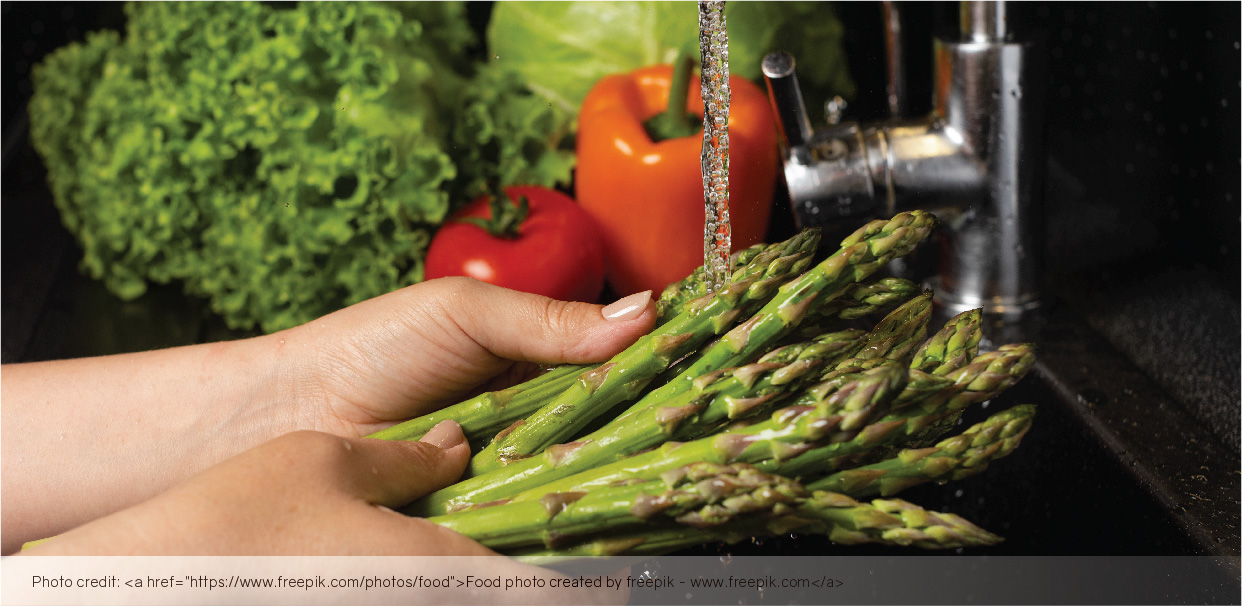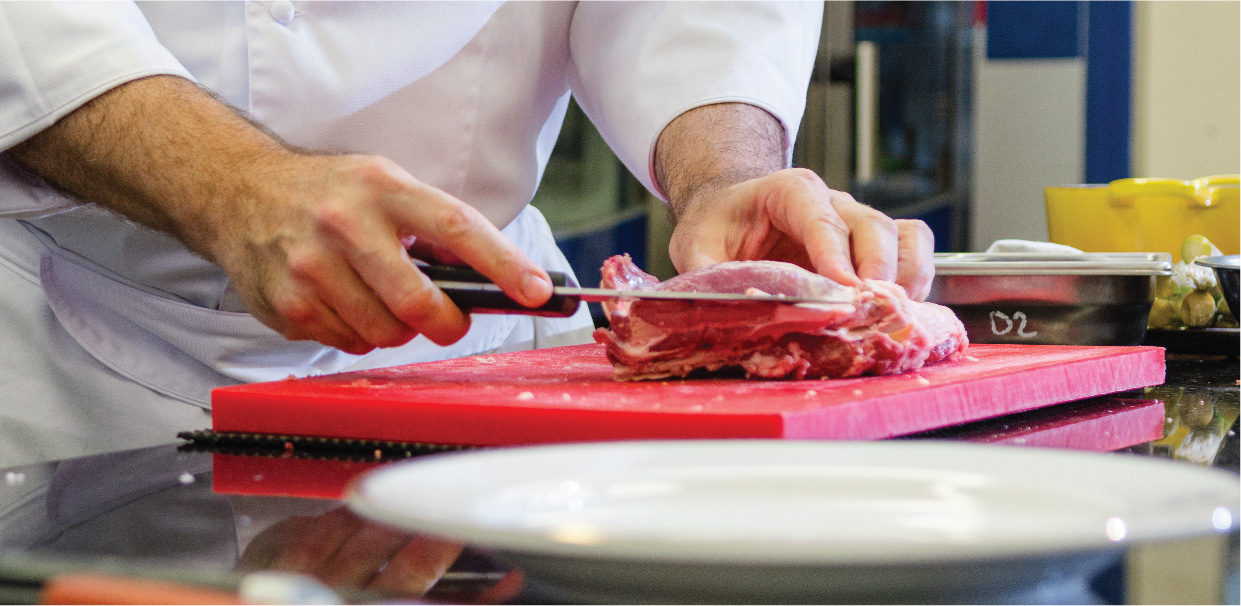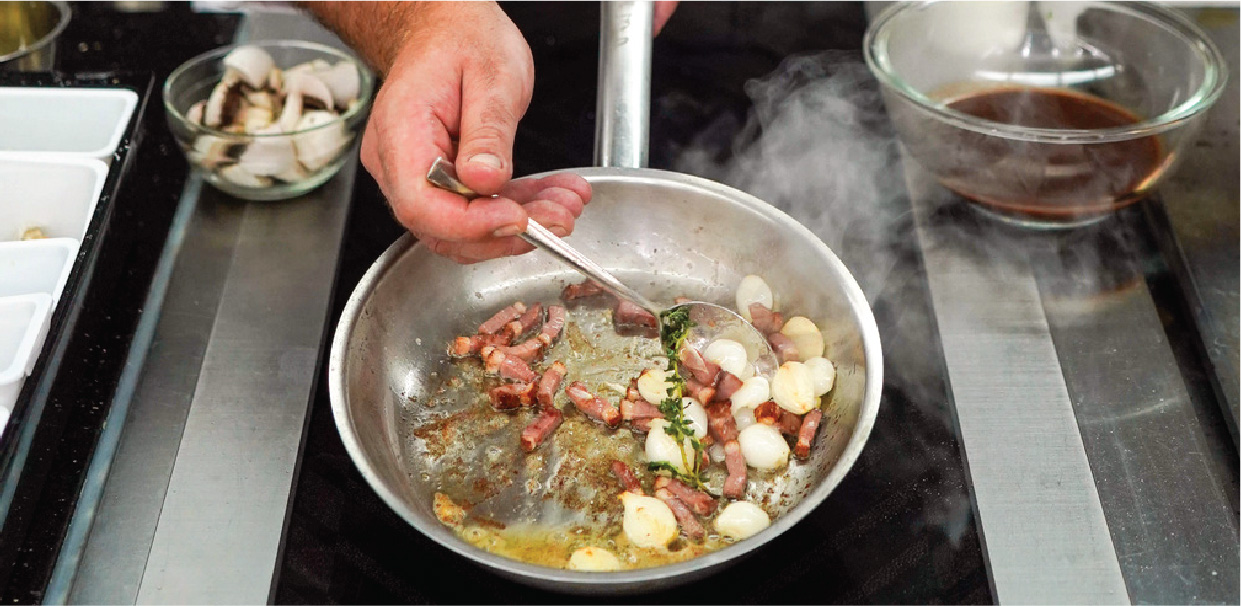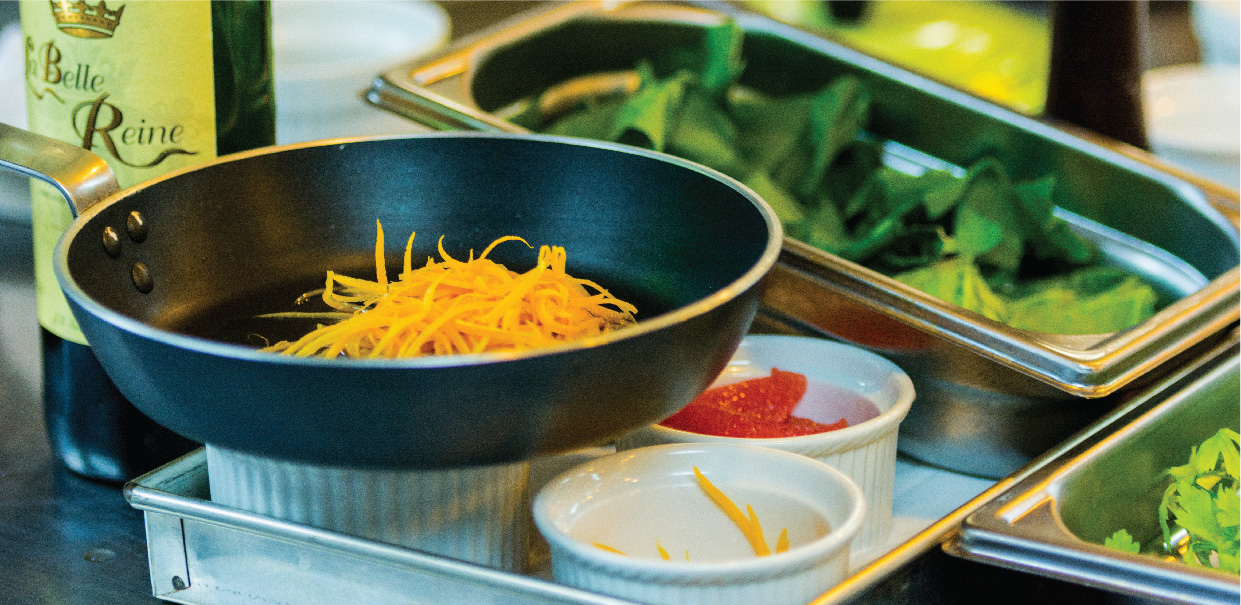What You Need To Know
About Food Safety
LE CORDON BLEU MALAYSIA

What you need to know about food safety
When you make a choice to dine out and eat food prepared in someone else’s kitchen, you are already placing a certain amount of trust in that person’s cooking. Apart from the quality and taste of the food, you are making an assumption that the food is prepared in a safe and palatable manner.
Most of us don’t really pay that much attention to food safety aspects anyway and are probably more concerned about the taste of the food. In fact, many jest that you should not look into the kitchen of your favourite restaurant as you may be shocked at what you find!
In truth, your favourite restaurant along with every food outlet, should adhere to the key principles of food safety. This encompasses handling, preparing and storing food in a safe and hygienic manner to ensure that the food is not contaminated and diners do not get sick from foodborne diseases caused by listeria or salmonella.
Food safety is a very important aspect in the food and beverage industry, and beyond the restaurants that we dine in, it also includes farms, factories and anyone who is involved in food production, be they vendors, chefs or kitchen helpers. Safe food handling practices have to be implemented at every stage of the supply chain to protect consumers.
 Hygiene
Hygiene
To ensure that the food served is safe to eat and people do not get food poisoning, food handlers must observe a high level of hygiene. They should wash their hands regularly with soap and water before and after preparing food. The kitchen or cooking station as well as the utensils including dishes, cutting boards and counter top should be properly and regularly cleaned. On top of this, ingredients such as vegetables and fruits should be properly rinsed under running water.
 Raw and cooked food
Raw and cooked food
Raw meat, poultry and seafood can easily contaminate other foods so it is important that they are kept separate. The juices of the raw meat, seafood and poultry must not come in contact with other foods, and when storing in the fridge, they should be kept in different containers, in a separate compartment from other foods. During preparation, separate plates, utensils and cutting boards should be used for raw food.
 Cooking
Cooking
You would think that once you start cooking, all the germs will be destroyed. However, the only way to ensure food is safely cooked is to cook at high enough temperatures that will kill the germs. At home, we use our eyes as a gauge to see if food properly cooked by looking at the colour and texture. But in a professional food business setting, chefs use a food thermometer to check that the food is cooked at safe internal temperatures. Different types of food get cooked at different temperatures, for example, beef cuts cooks at 63°C whereas chicken needs to be cooked at 74°C.
Storing food correctly
Food left out in the open usually gets bad faster, especially when left out at room temperatures, what more in our hot tropical weather which allows bacteria to multiply easily. When storing food in the fridge, temperatures must be maintained at 4°C and below. Food from the freezer should be thawed in the microwave or refrigerator, and not just kept in the open kitchen.
 Safe ingredients
Safe ingredients
We would assume the food that we eat are made from safe ingredients but it is not always the case. Something as basic as water used for cooking can also make us sick if the source is not clean. The raw materials used for cooking should also come from a safe and reliable source, kept in a clean and safe place in the proper procedure.
There are just some of the basic essentials of food safety that should be applied, both in a commercial setting and at home. Other potential food hazards which should be considered are food allergies or intolerance, and food poisoning, all of which carry dire consequences if proper measures are not taken immediately.
In the big picture, the sale of food products makes up a large portion of the global market, and as such, food safety compliance is crucial. Every country has its own set of regulations and laws that enforce domestic food safety standards. In order to sell or manufacture food products, food providers and suppliers must have the necessary certifications and approval from the appropriate government bodies or private regulators.
Failure to comply with food safety procedures may potentially result in financial loss if the food has to be recalled, or even a human cost leading to foodborne injury or illness, and possibly death.
Food safety is a very important component at Sunway Le Cordon Bleu which includes a certification from Highfields. The top culinary arts institute in Malaysia offers a Diplôme de Boulangerie programme, Diplôme De Pâtisserie and the highly acclaimed Diplôme De Cuisine which will come in handy if you want to start your own restaurant or bakery. During these courses, students will be exposed to a multitude of ingredients and an international network of chefs, helping them adapt to world cuisines and learn about food safety practises around the world.
As part of their studies, Le Cordon Bleu students will have to obtain the Highfield Food Safety Qualification (External) Certificate which is a compulsory subject for all the accredited programmes. Highfield is a global leader in providing compliance qualifications highly regarded in Europe, the Middle East and Asia, regulated by Ofqual in England and the No. 1 examining body in the UK for delivering regulated food safety qualifications.
Many of the world’s leading hotels and restaurants require their chefs to be qualified in food safety and allergen management. By having a recognised food safety qualification along with your diploma, employers will have greater confidence that you will safeguard the wellbeing of their customers. During the food safety course, students will learn about the importance of personal responsibilities for food safety, the importance of personal hygiene, keeping work areas clean and keeping food products safe in a catering environment as well as food safety leadership and communication within a business.
Armed with these qualifications, you can be assured of entering the food and beverage industry with a good fundamental understanding of food safety principles.
For more information about our programmes please WhatsApp us at 019-3052586 or email to malaysia@cordonbleu.edu


 Hygiene
Hygiene Raw and cooked food
Raw and cooked food Cooking
Cooking Safe ingredients
Safe ingredients